Freescale Semiconductor on Monday began showcasing the MPC7448, its latest high-performance PowerPC processor and the highly touted successor to the MPC7447A chip used in current Apple PowerBook G4 systems.
The MPC7448 is also the first product in the MPC74xx family to use Freescale's 90 nanometer (nm) silicon-on-insulator (SOI) CMOS process that will significantly increase clock and bus speeds while reducing power requirements.
Running much cooler than its predecessor, the MPC7448 offers GHz-class performance at less than 10 Watts. The MPC7448 power management features also include nap and sleep modes and introduce dynamic frequency switching that permits system software to reduce power "on the fly."
The e600 PowerPC core packs AltiVec technology, a single instruction multiple data (SIMD) engine capable of accelerating networking applications, such as security algorithms, network stack processing, routing and more.
"The MPC7448 is a seamless step up in performance that demonstrates Freescale's continued commitment to developing compatible high-performance PowerPC processors for the embedded market," the company said in a statement. It is also a stepping stone to the MPC8641D dual-core processor based on the same e600 PowerPC core.
According to Freescale documents, the MPC7448 and MPC8641D PowerPC G4 processors share many architectural similarities that make them highly compatible, including support for asymmetric and symmetric multiprocessing, identical 32KB L1 cache and 1MB L2 cache, and identical AltiVec technology attributes and performance.
Additionally the same customer application binary code can run on the MPC7448 and MPC8641D, meaning Apple could adopt the dual-core G4 chip for its mobile offerings down the line. However, by the time Freescale begins mass-producing the MPC8641D, Apple will likely be ready to debut a dual-core PowerBook based on Intel's Yonah mobile processor.
In the meantime, Freescale said the MPC7448 — which has been sampling since February — is planned to be in full production in October 2005. The chip will likely begin showing up in Apple laptop-based systems shortly thereafter, offering a substantial increase in battery performance and slight speed boost over today's systems.
According to EEMBC (Embedded Microprocessor Benchmark Consortium) certified performance benchmark tests, a 1.7GHz MPC7448 scored a 350.8 in the DENbench suite "out-of-the-box," while AltiVec engine optimization helped double application performance to 762.0.
 Kasper Jade
Kasper Jade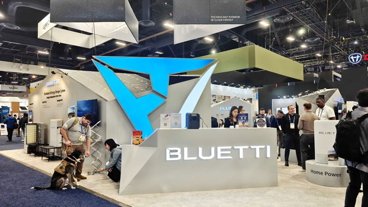



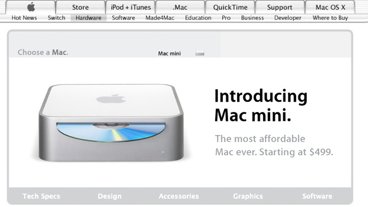

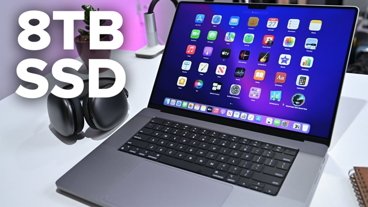
-m.jpg)





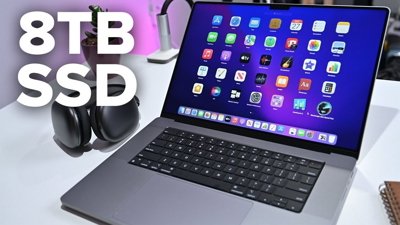
 Christine McKee
Christine McKee
 Marko Zivkovic
Marko Zivkovic
 Wesley Hilliard
Wesley Hilliard
 Malcolm Owen
Malcolm Owen


 William Gallagher
William Gallagher
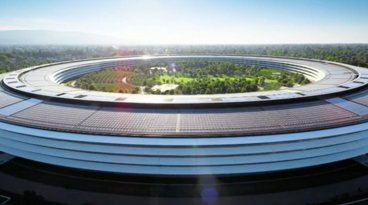









136 Comments
Too little, too late.
With the powerbook G5's just around the corner (we all know they are!), this is just another instance of motorola/freescale being late to the party.
These sound pretty impressive to me. If these appear in the iBooks around octocber/november, when will we see the next revision of the iBook? Would they really wait until then and miss the education season, or will we see it at NECC?
Based on Freescale's e600 PowerPC core, the MPC7448 represents the most significant update to the MPC74xx family of processors to date and is expected to offer speeds from 600 MHz to 1.7 GHz with the system bus running up to 200 MHz.
The most significant update to the MPC74xx family of processors is the 7410 -> 7450 update. Unless, "74xx" does not include the 7400/7410?
AltiVec is the SIMD engine capable of ...
The 7448 and 8641 come in different packaging with different bus protocols. They obviously would support the same software, but hardware-wise, the 8641 represents a brand new logic board architecture, not the drop-in replacement to existing boards that is the 7448. Ie, they are not really compatible from a hardware perspective.
Wow. Whatever happened to volume production in 2H 05? It's October now?
[B]The most significant update to the MPC74xx family of processors is the 7410 -> 7450 update. Unless, "74xx" does not include the 7400/7410?
"The most significant update" -- those were Freescale's words, not ours
And that was a misplaced "and" that was corrected immediately.
Thanks,
Kasper
I was thinking of waiting for the next Powerbook update before switching, but November is too far away. OS X here I come! 8)